Overview of the Wildfires in Los Angeles
The ongoing wildfires in Los Angeles and surrounding areas have led to significant destruction, including the deaths of 25 individuals, the destruction of around 10,000 structures, and the evacuation of over 200,000 residents. The financial impact of these fires is estimated to be in the billions, highlighting a dire situation exacerbated by various factors.
Conditions Leading to the Fires
According to investigative journalist Mike Shellenberger, the early onset of the Santa Ana winds and the accumulation of dry, untended vegetation created a perfect storm for wildfires. The presence of numerous homeless individuals, particularly those struggling with substance abuse, has also contributed to the fire risk. This situation was foreseen mainly by the local population, who were aware of the imminent danger posed by the environmental conditions and human factors.
Government Response and Critique
The response from local government officials has drawn criticism, mainly directed at LA Mayor Karen Bass. Despite her campaign promises, Bass was traveling abroad during the initial outbreaks of the fires and has been criticized for budget cuts to firefighting resources. Furthermore, the inadequately maintained reservoirs, which ran dry for over a year, hindered firefighting efforts when the blazes erupted.
Cultural Implications and Commentary
The wildfires have sparked broader discussions about the state of Western civilization. The situation in Los Angeles has been likened to biblical catastrophes, suggesting a moral decline linked to self-loathing ideologies prevalent among the elites. Critics argue that a culture of nihilism has emerged, characterized by a disregard for historical values and responsibilities, ultimately leading to societal collapse.
Historical Context of Civilization Decline
The concept of civilizations experiencing cycles of rise and decline is not new. Historical figures like Camille Paglia have noted that cultural shifts often accompany periods of societal unraveling. The current scenario, marked by a lack of belief in foundational truths and the embrace of destructive ideologies, echoes patterns seen in past civilizations.
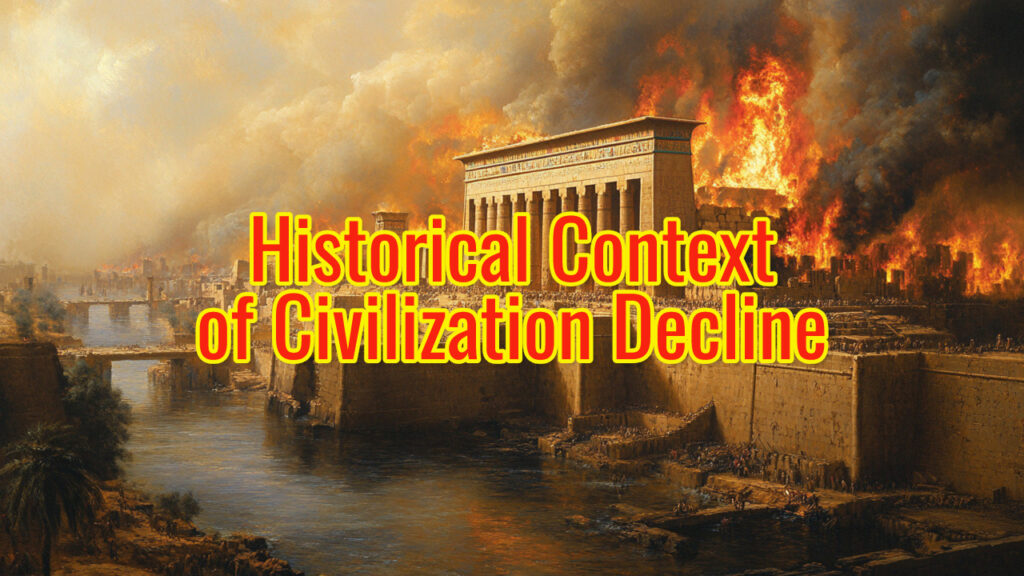
Final Thoughts on Resilience and Hope
While the elite may appear disconnected and destructively nihilistic, a significant portion of the population cherishes hope and dreams for the future. The fires in Los Angeles serve as a reminder of the urgent need to address environmental and societal neglect, emphasizing the importance of truth and accountability in the face of adversity.
Key Insights
CURRENT WILDFIRE CRISIS IN LA
- The Los Angeles area has experienced devastating wildfires since the start of the year, resulting in 25 fatalities, the destruction of approximately 10,000 structures, and the evacuation of over 200,000 residents.
- The financial impact of the fires is significant, with damages running into billions of dollars.
- Multiple active fires continue to threaten vast areas, highlighting ongoing risks to the community.
CONDITIONS LEADING TO FIRES
- Investigative reporter Mike Shellenberger noted that the conditions for a fire outbreak were evident weeks prior, including early hot and dry Santa Ana winds and a buildup of dry vegetation.
- The presence of a large homeless population, some of whom are addicted to methamphetamine, has contributed to the risk, as their campfires can ignite surrounding areas.
- Local knowledge of these risks indicates a general awareness that such catastrophic events were likely to occur.
FAILURES IN LEADERSHIP AND PREPAREDNESS
- LA Mayor Karen Bass was criticized for being out of the country during the outbreak of significant fires and for cutting millions from the firefighting budget.
- Inefficient management has left critical resources, such as the local reservoir, empty for over a year, hampering firefighting efforts.
- A controversial statement by a deputy fire chief suggesting that individuals must take personal responsibility for their safety has sparked public outrage and raised questions about emergency response protocols.
CULTURAL AND SOCIETAL CONTEXT
- The narrative suggests that the fires and their aftermath reflect broader societal issues, including a perceived self-loathing among elites in a city often characterized by privilege and wealth.
- The discussion draws parallels between the current crises and historical cultural declines, positing that a culture lacking belief and loyalty is prone to collapse.
- Critics argue that a nihilistic ideology has emerged among some societal groups, leading to destructive behaviors and disregarding essential truths.
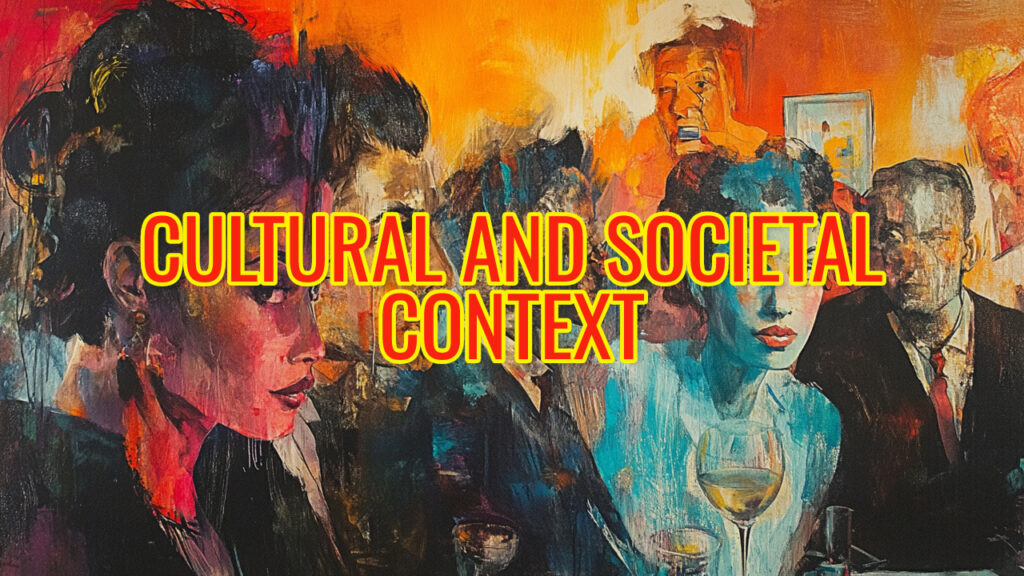
IMPACT OF IDEOLOGICAL SHIFTS
- The transcript connects the wildfire crisis to a more significant cultural commentary, suggesting that neglecting reality and embracing radical ideologies may lead to societal decay.
- The argument posits that the acceptance of ideologies challenging traditional truths, such as gender identity and family values, undermines societal stability.
- The portrayal of the elite’s disengagement from the struggles faced by ordinary citizens underscores a growing divide and a potential catalyst for further unrest.
Thanks for Reading
Steven G Smith

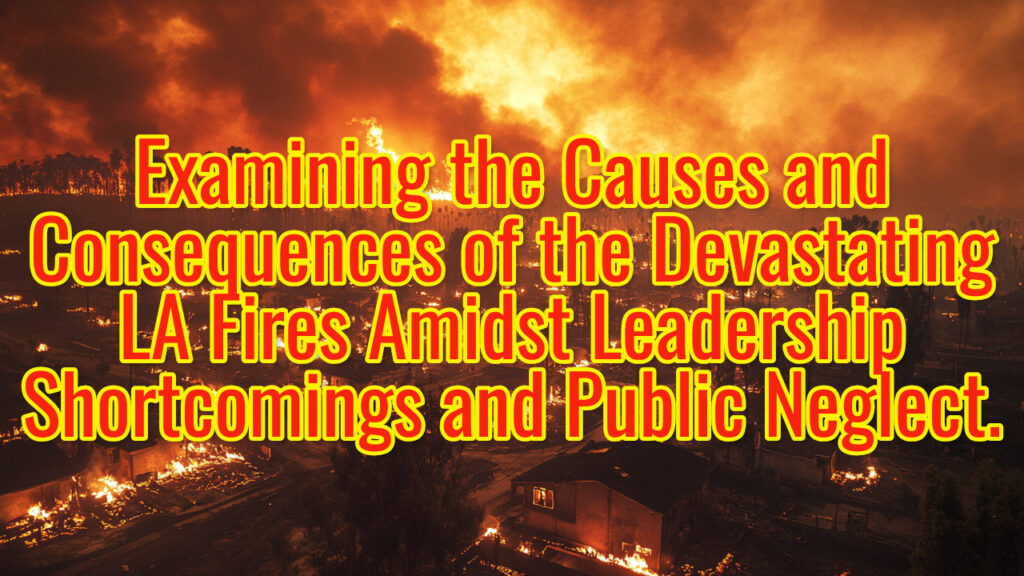
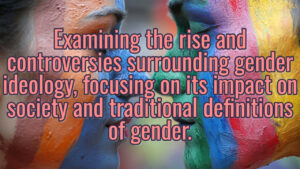

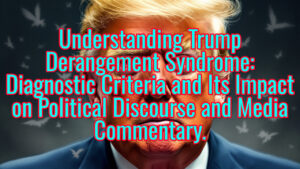
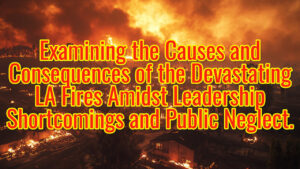
More Stories
Examining the rise and controversies surrounding gender ideology, focusing on its impact on society and traditional definitions of gender.
Canada’s DIRTY SECRET Makes Annexation Inevitable
Understanding Trump Derangement Syndrome: Diagnostic Criteria and Its Impact on Political Discourse and Media Commentary.